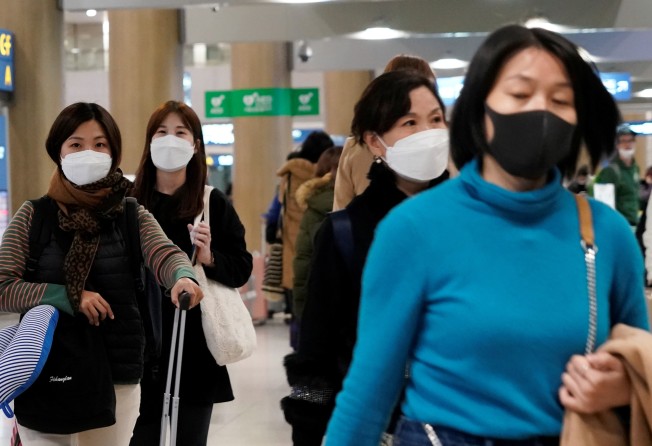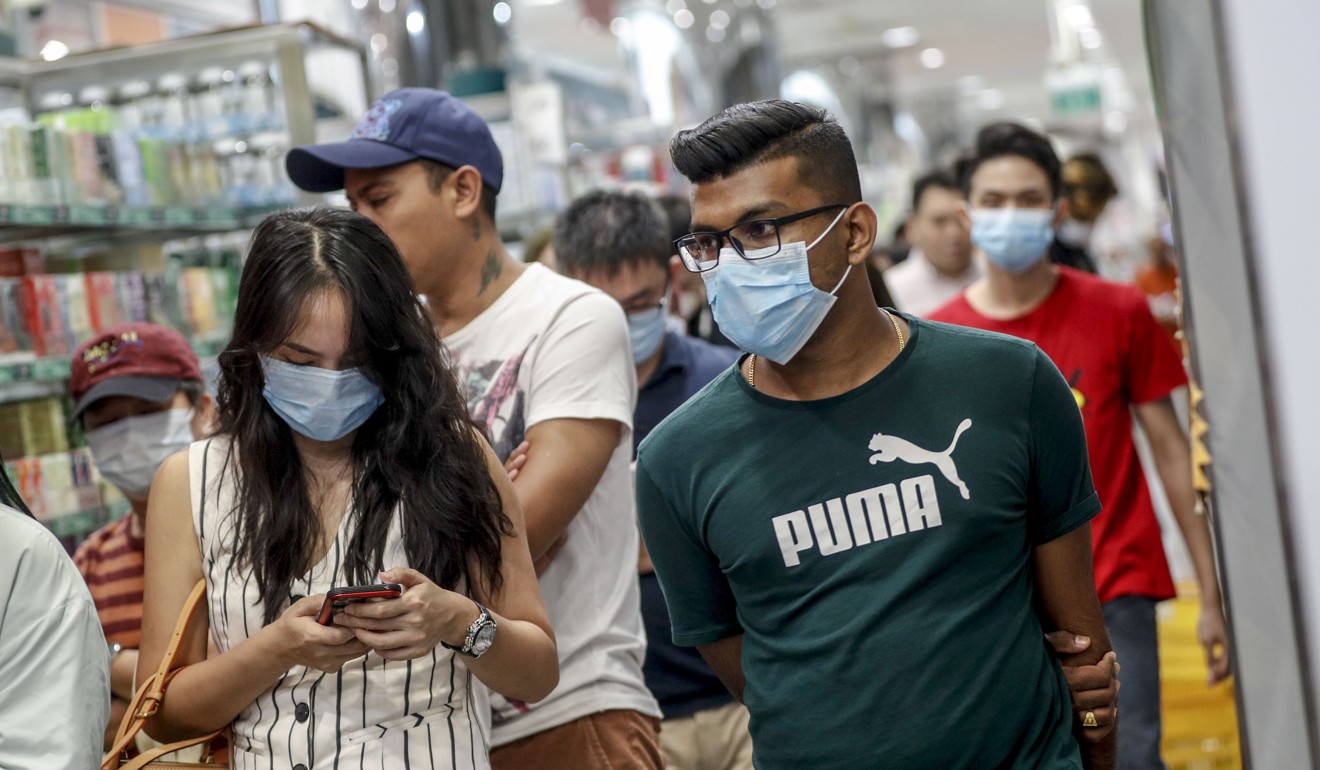Coronavirus cases in South Korea and Malaysia linked to Singapore meeting spark WHO investigation
- A Malaysian and South Korean were infected after going to a conference in Singapore, which included guests from China and Wuhan
- The source of their infections has not been identified

Coronavirus cases in South Korea and Malaysia tied to a business meeting in Singapore attended by visitors from China, including Wuhan, have prompted an investigation into the infection’s international spread.
At least three employees of the multinational company, including a 41-year-old man in Malaysia and a 38-year-old man in South Korea, were infected with the so-called 2019-nCoV virus after attending a meeting at a Singapore hotel in the third week of January, health authorities said.
Singapore late on Wednesday said four other attendees were showing symptoms.
The World Health Organisation (WHO) is coordinating with Singapore’s Ministry of Health in relation to the event, said Olivia Lawe Davies, the agency’s Manila-based regional communications manager.
“Based on current information, there is no evidence of effective and sustained community transmission,” Lawe Davies said in an email on Wednesday. “As countries are stepping up surveillance, the detection of more cases of local transmission can be expected.”
Health authorities are looking for so-called super-spreader events reminiscent of the Sars outbreak 17 years ago, when an infected doctor from Guangdong transmitted the virus in a Hong Kong hotel to numerous guests, who then carried the germ to cities including Toronto, Hanoi and Singapore.
The event in Singapore has been tied to only the confirmed coronavirus cases in South Korea and Malaysia, and the source of their infections has not been identified.
Singapore’s Health Ministry, in a press release on Wednesday night, said 109 participants from the same company had attended the business event at the Grand Hyatt Singapore from 20 to 22 January. There were 94 participants who came from overseas and had since left the country, and the ministry had informed their foreign counterparts.
Of the 15 who remained in Singapore, 11 are well and four have reported symptoms and are being checked, the press release said.
The infected Malaysian man was in Singapore till January 23 but only showed symptoms on January 29, nearly a week after he returned to Malaysia, health authorities there said.
The luxury hotel, located off Singapore’s Orchard Road shopping strip, has not been advised on how, where and when the Malaysian man was infected, and the hotel was not aware of any other confirmed or suspected cases among the hotel’s guests or colleagues, it said in a statement Wednesday.
The hotel, which says it has 677 guestrooms and suites, has implemented “deep-cleaning measures” in public areas, restaurants, meeting spaces and guestrooms, and has shared a comprehensive guide about the coronavirus with Hyatt hotels globally on procedures to protect against transmission of the virus, according to the statement.

The 38-year-old South Korean man was confirmed as South Korea’s 17th case on Wednesday.
He had contracted the disease from the Malaysian man when he attended the same meeting in Singapore from January 18-24, the Korea Centres for Disease Control and Prevention (KCDC) said.
“After returning from the conference, the 17th patient was later told that there had been a confirmed patient, a Malaysian, among the participants of the event,” the KCDC said in a statement. “He then visited a clinic on Tuesday for a test.”
Singapore reported its first local transmission of the virus on Tuesday, with four cases that involved human-to-human transmission in the city, bringing the total number of reported cases to 24.
The infections have cast a shadow over the city’s conference and exhibitions industry, a major contributor to the economy.
On Wednesday, South Korea also announced its 18th case of the virus. She is the 21-year-old daughter of a woman who was diagnosed with the coronavirus two weeks after returning from a Thailand trip, becoming the country’s 16th patient.
The 42-year-old mother is suspected to have infected her daughter at a clinic in the southern city of Gwangju, 330km south of Seoul. Those who have been in contact with her at the facility, including medical staff, have been placed in quarantine.
The KCDC said it was now conducting contact tracing of all the country’s confirmed cases, amid growing concerns over further human transmission.
The agency said earlier that it had quarantined 129 people to test for the coronavirus.
President Moon Jae-in’s government faces mounting calls for an all-out ban on travellers arriving from China, despite the leader’s appeals for a cool-headed response.
An online petition calling for a China travel ban has garnered 670,000 supporters since it was posted on the presidential Blue House official website in late January.
The Korean Medical Association (KMA), the country’s largest association of medical doctors, has repeatedly urged the government to bar all entry to all travellers arriving from China.
Seoul on Sunday imposed a ban on travellers who have visited Hubei province in the past 14 days from entering the country, a measure rejected by the KMA as “insufficient”.
“The most important thing to do now is to stop infected people from entering the country from abroad,” Korea University Medical College Professor Choi Jae-wook said on a local radio news programme. “Otherwise, new cases would continue popping up no matter how much effort the government may make to fight the virus.”
Additional reporting by Reuters